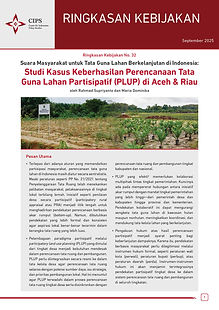Indonesia's Accession to OECD Understanding the Economic Implications

Authors

Center for Indonesian Policy Studies
As Indonesia pursues its Golden Vision 2045—the national goal to become a high-income economy by its centenary—joining the Organisation for Economic Co-operation and Development (OECD) is a strategic move. This process requires deep regulatory reforms to align with international standards, offering not just credibility but tangible economic benefits. The Center for Indonesian Policy Studies (CIPS) conducted a forward-looking analysis to assess what OECD membership could mean for Indonesia’s economic trajectory.
The study finds that accession could unlock a surge in foreign investment—up to USD 87.7 billion by 2028—and lift GDP growth by nearly 1 percentage point annually. Using Computable General Equilibrium (CGE) modeling, the report shows how joining the OECD could accelerate transformation in key sectors like manufacturing, digital services, and renewable energy, while improving Indonesia’s global competitiveness. For policymakers, investors, and reform advocates, this study offers a timely roadmap to understand and maximize the economic dividends of OECD integration













































